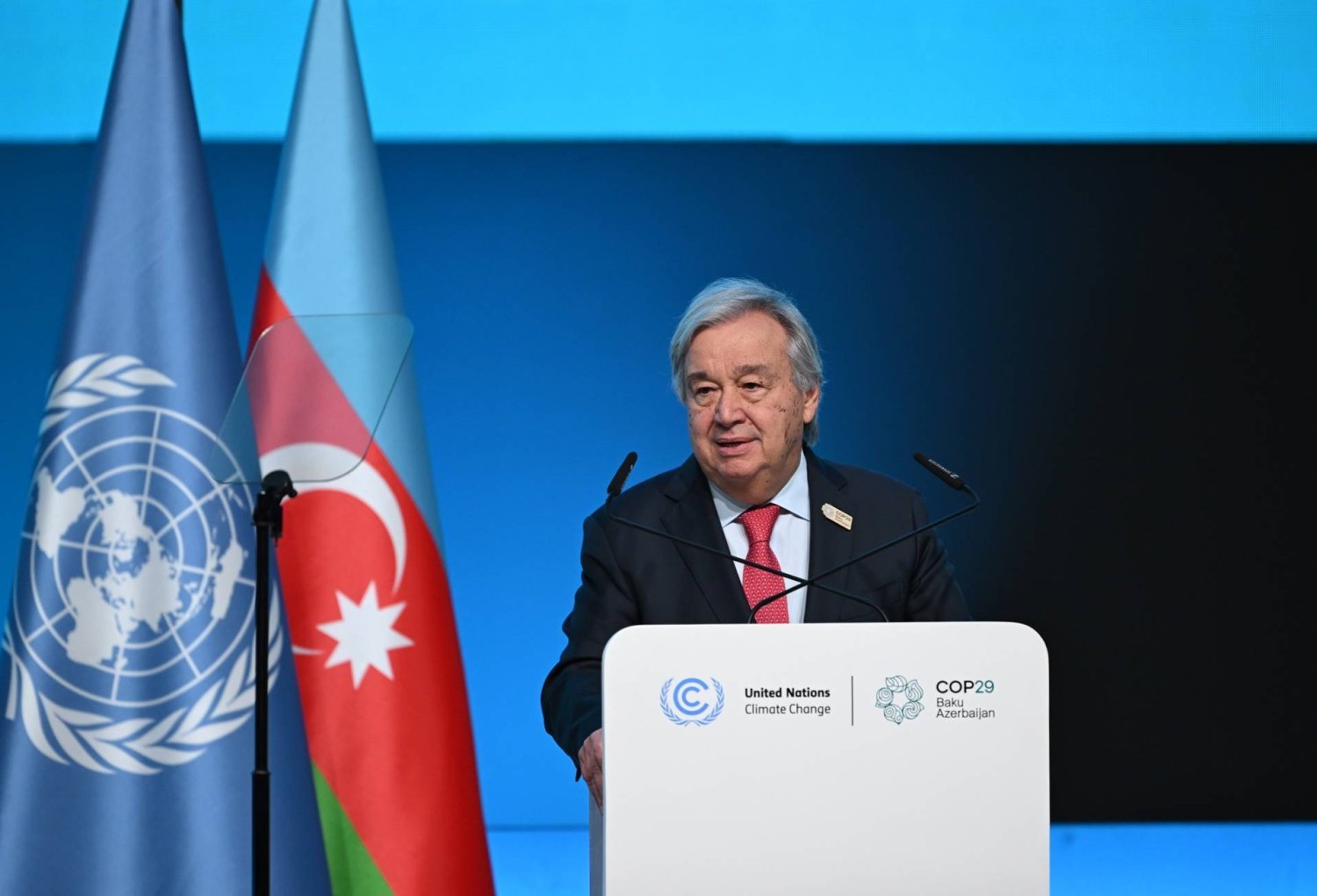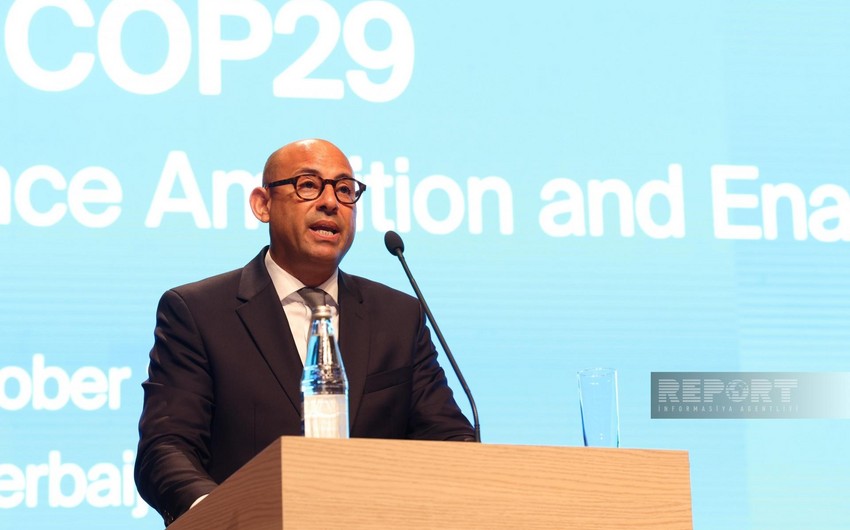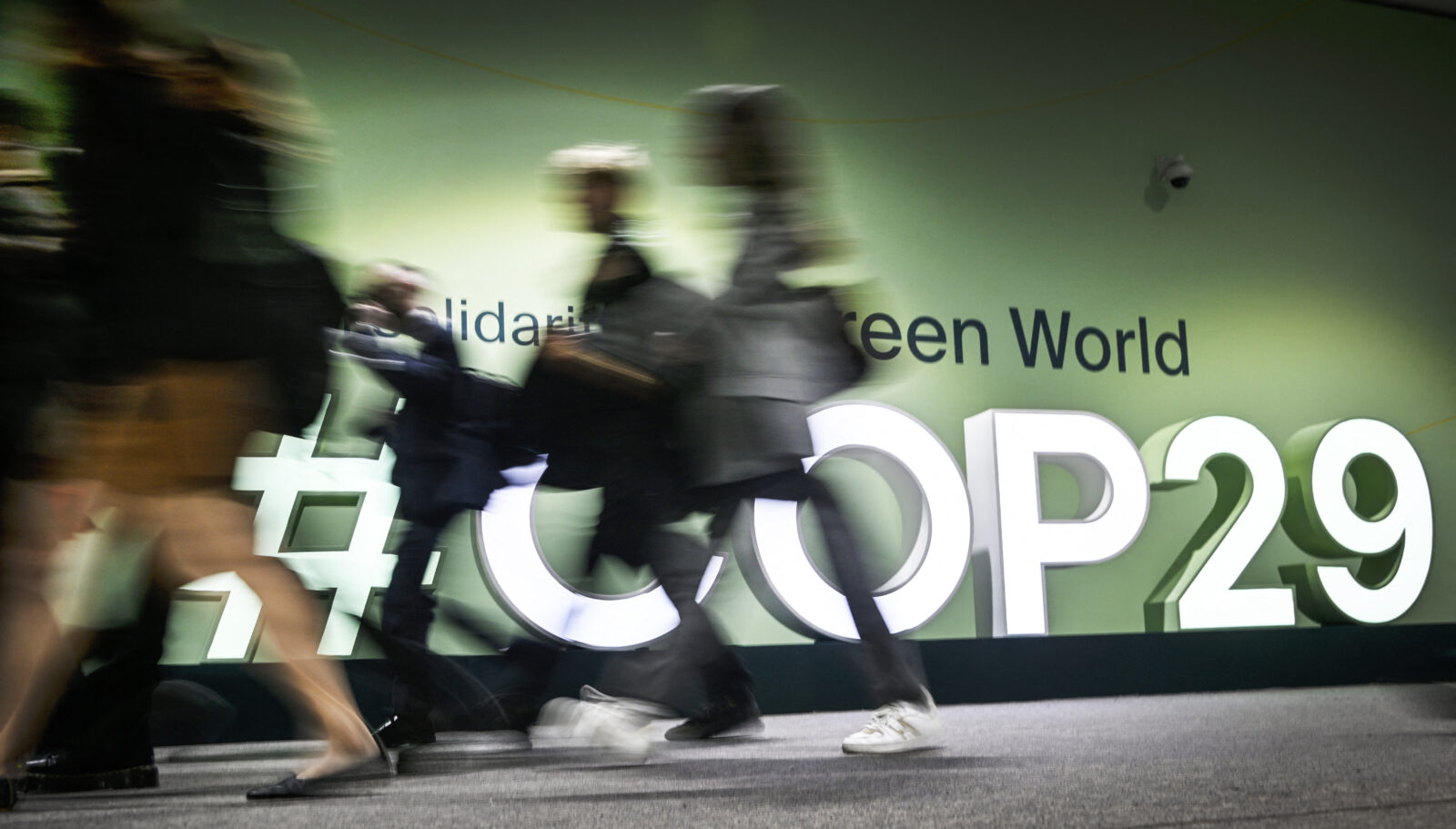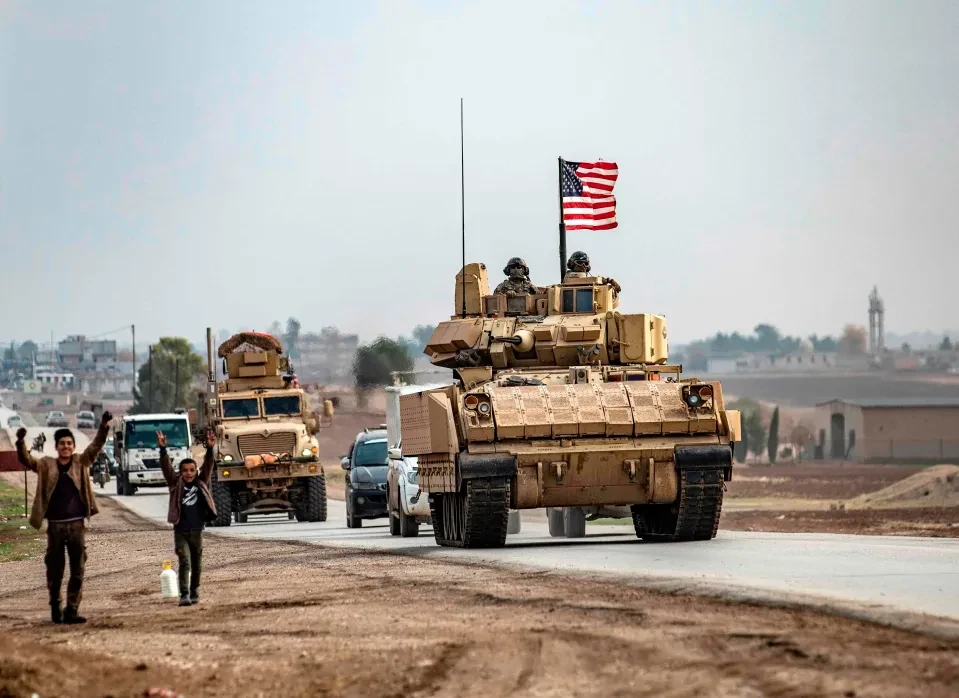COP29: Developed nations pledge $300B for climate, but face criticism
 United Nations Climate Change Conference COP29 starts in Baku, Azerbaijan, with climate finance as the main agenda. Key topics include the current state of global warming efforts and other critical issues related to climate change (AA Photo)
United Nations Climate Change Conference COP29 starts in Baku, Azerbaijan, with climate finance as the main agenda. Key topics include the current state of global warming efforts and other critical issues related to climate change (AA Photo)
Developed nations at the U.N. Climate Change Conference (COP29) in Baku committed to providing $300 billion annually to combat climate change, with a plan to increase this amount to $1.3 trillion by 2035.
Despite the pledge, developing nations criticized the funding as inadequate to address the severity of the climate crisis.


Key developments of COP29 decision
- U.N. Secretary-General Antonio Guterres acknowledged the agreement but stressed it falls short of the necessary ambition.
The $300 billion annual funding falls short of addressing the immense challenge we face.
U.N. Secretary-General Antonio Guterres
- UNFCCC Executive Secretary Simon Stiell also expressed concern, urging countries to scale up their efforts ahead of COP30.
There’s still much work to do. We must double our efforts before next year.
UNFCCC Executive Secretary Simon Stiell
Developing nations push back
- Developing countries described the agreement as inadequate, arguing it fails to meet their expectations for a stronger commitment.
- India’s COP29 representative, Chandni Raina, criticized the deal as “an optical illusion” that “fails to address the magnitude of the challenges confronting us.”
- Tina Stege, representing the Marshall Islands, called the funding insufficient, saying it leaves “vulnerable nations with just a fraction of the resources they urgently need.”
- African nations echoed these sentiments, with Sierra Leone’s delegate accusing developed nations of demonstrating “a lack of goodwill.”

Why it matters?
The agreement highlights ongoing tensions between developed and developing nations over climate financing.
Vulnerable countries argue they bear the brunt of climate change impacts while wealthier nations fail to deliver sufficient support.
Broader context
- The pledge coincides with confirmation from the EU’s climate observation platform, Copernicus, that 2024 is on track to become the hottest year on record.
- Global temperatures for the first 10 months of 2024 were 0.71°C above the 1991-2020 average, underscoring the urgency of meaningful climate action.
What’s next?
As COP30 approaches, pressure will intensify on developed nations to deliver on their financial commitments and provide a more equitable approach to climate financing.
Developing countries continue to call for greater contributions from major emitters, including the U.S., Canada, China, and Gulf states.



